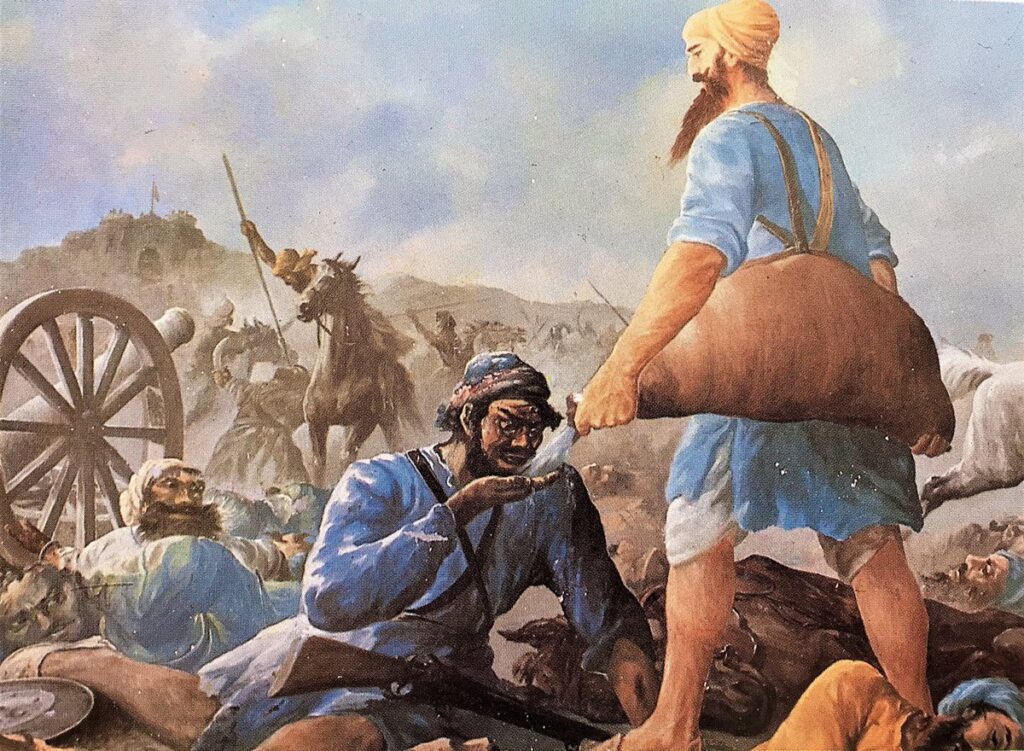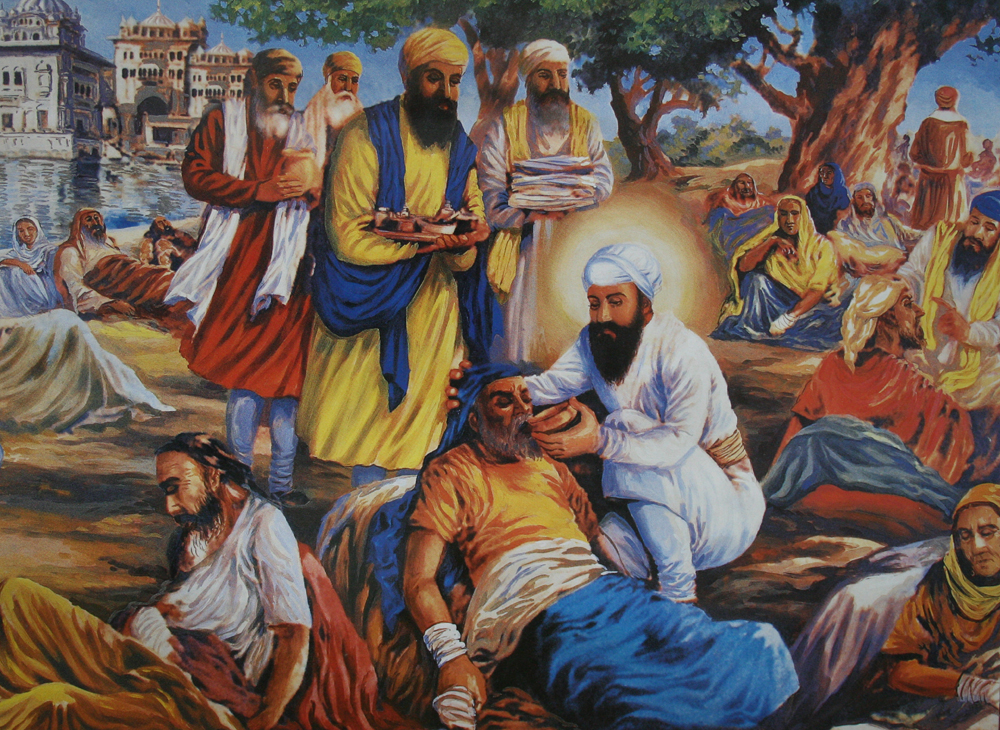- Joined
- Mar 10, 2024
- Messages
- 2,393
- Points
- 83
Sikhs and Sikhism is a relatively very new religion about 550 years old which arose after the terror of the the repeated invasion of the Mughal Muslim rulers against the Hindus of India.
In the process the Sikhs became the soldiers of their Gurus and were termed Saint Soldiers.
Being termed Saint Soldiers you will have to comply with the following rules and commands.
From AI
Sikhism strictly forbids harming civilians in times of war, under the concept of Dharam Yudh (righteous war). A Sikh soldier, known as a Sant Sipahi or "saint-soldier," is commanded to use force only as a last resort against tyranny and to defend the oppressed, not to engage in violence against innocent people.
Key commandments governing a Sikh soldier's conduct regarding civilians include:
In the process the Sikhs became the soldiers of their Gurus and were termed Saint Soldiers.
Being termed Saint Soldiers you will have to comply with the following rules and commands.
From AI
Sikhism strictly forbids harming civilians in times of war, under the concept of Dharam Yudh (righteous war). A Sikh soldier, known as a Sant Sipahi or "saint-soldier," is commanded to use force only as a last resort against tyranny and to defend the oppressed, not to engage in violence against innocent people.
Key commandments governing a Sikh soldier's conduct regarding civilians include:
- Do not harm civilians: The most fundamental rule is that non-combatants must not be targeted or harmed. The Gurus strongly condemned the indiscriminate killing of innocent people during armed conflict.
- Fight for righteousness, not oppression: War must be undertaken for a just cause and not for personal gain, revenge, or territorial expansion. The ultimate goal is to defeat injustice, not to oppress others.
- Help the weak and oppressed: A Sikh's duty is to protect the vulnerable, which includes women, children, and the elderly. Sikh history records instances of soldiers rescuing captured women during invasions and returning them safely to their families.
- Treat surrendered enemies with respect: Soldiers who lay down their weapons and surrender must not be harmed. The Sikh principle of seeing the divine in all people extends even to enemies on the battlefield.
- Do not plunder or destroy property: Looting or the destruction of private property and public assets is forbidden. Annexing territory for personal gain is also against Sikh ethics.
- Respect places of worship: Religious sites of any faith must not be attacked or desecrated.
- Honor cease-fires and treaties: A Sikh soldier must honor agreements and promises made during the conflict.
- Use minimum force: Only the minimum force necessary to defeat the enemy should be used. Using weapons of mass destruction that cause indiscriminate harm to civilians is considered wrong.


